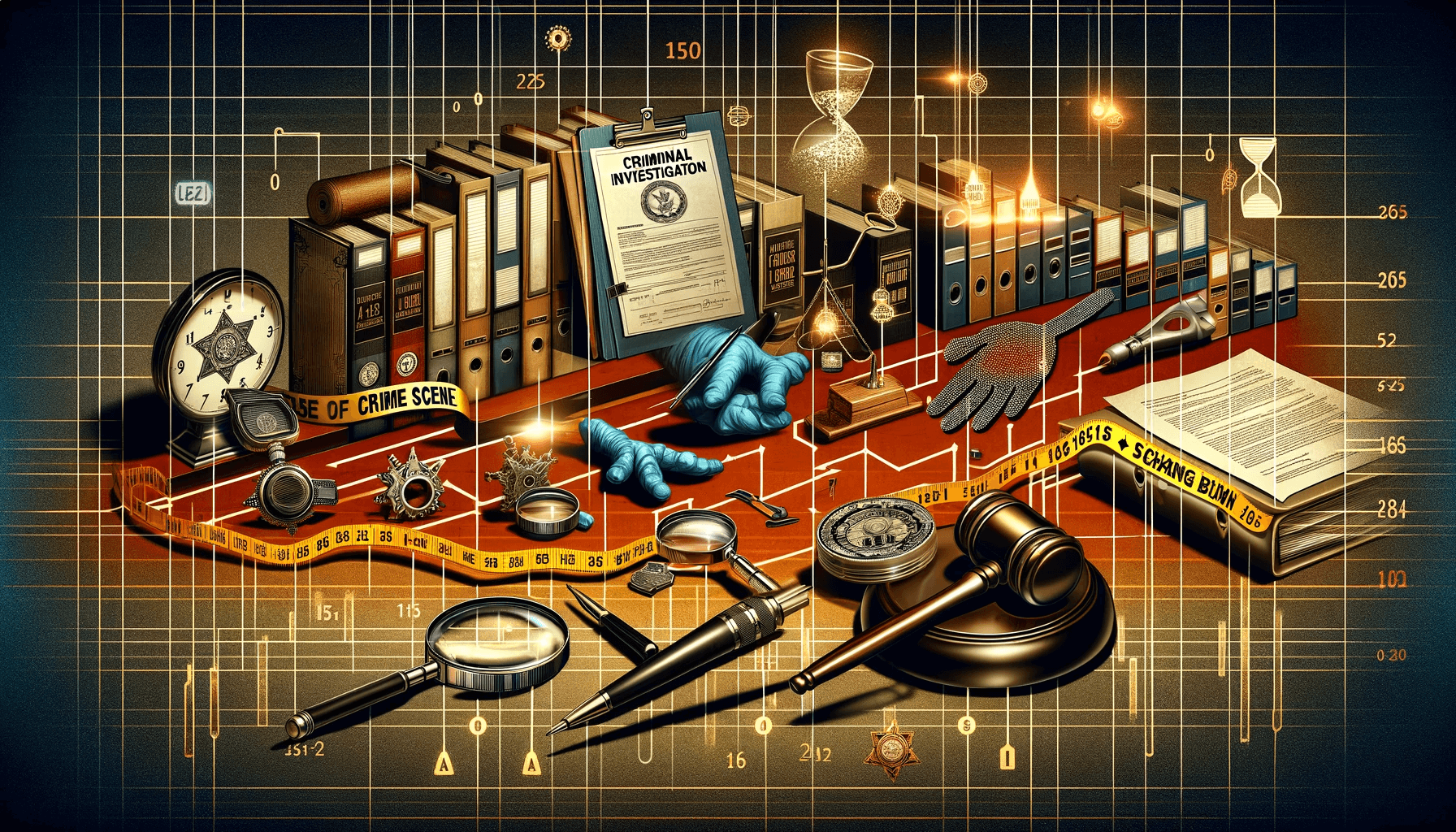Navigating the U.S. criminal justice system can often be complex and confusing, especially when it comes to understanding the length of criminal investigations. This comprehensive article sheds light on the factors that influence the duration of a criminal investigation, offering insight into the legal processes and timelines involved.
What is a Criminal Investigation?
A criminal investigation is a process where law enforcement agencies gather evidence and information to identify, apprehend, and prosecute individuals suspected of committing crimes. This process is fundamental in ensuring justice and maintaining public safety.
Factors Influencing the Duration of an Investigation
1. Nature and Complexity of the Crime
The complexity of the crime significantly impacts the length of an investigation. Simple cases like petty theft may be resolved quickly, while more complex cases, such as white-collar crimes or homicides, require extensive investigation.
2. Availability of Evidence
The availability and accessibility of evidence play a crucial role. Investigations with readily available evidence, like surveillance footage, can be quicker compared to those relying on forensic analysis or witness testimonies.
3. Resources and Workload of Investigating Agencies
Law enforcement resources and workload can affect the timeline. Well-funded agencies with ample resources might conduct investigations more efficiently than smaller, resource-strapped departments.
4. Legal Procedures and Requirements
Legal procedures, such as obtaining warrants and following due process, can extend the duration of investigations. Compliance with these procedures is crucial to ensure the admissibility of evidence and uphold the rights of the accused.
Phases of a Criminal Investigation
Initial Response and Assessment
The investigation begins with an initial response, often at the crime scene. This phase involves securing the scene, collecting immediate evidence, and initial interviews.
In-Depth Investigation
This phase includes gathering and analyzing evidence, interviewing witnesses, and potential suspects. Forensic analysis, if required, is conducted during this stage.
Follow-Up Investigations and Case Building
Investigators may need to follow up on new leads or information. The evidence is pieced together to build a strong case against the suspect.
Conclusion and Charging Decision
The investigation concludes once sufficient evidence is gathered. The case is then presented to prosecutors, who decide on the charges.
Average Duration of Criminal Investigations
The duration of criminal investigations in the U.S. varies widely. Some cases are resolved in days or weeks, while others may take months or even years. Factors mentioned above heavily influence this timeline.
Role of Legal Counsel
It’s crucial for individuals under investigation to seek legal counsel. A defense attorney can provide guidance, ensure legal rights are protected, and potentially expedite the investigation process.
Conclusion
Criminal investigations are intricate processes influenced by various factors. Understanding these factors and the typical phases of an investigation can provide clarity to those involved or affected by such investigations. It’s important to remember that each case is unique, and the timeline can vary significantly.









Leave a Reply